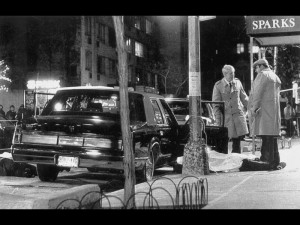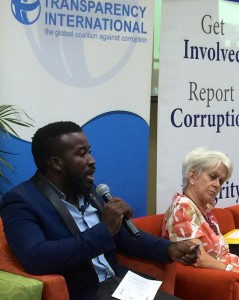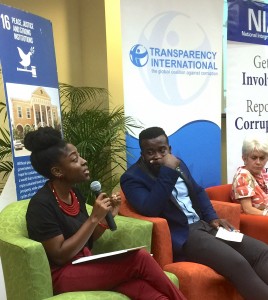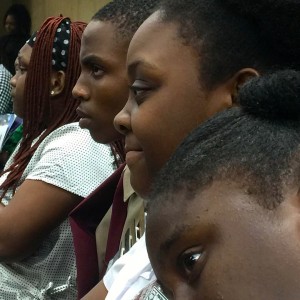
The Nature of Violence, Youth and Broken Windows
December 27th, 2018
I was astounded to read in the New York Daily News that for five days over Christmas, there were no murders at all in that city of 8.6 million. Zero.
Now, New York is a deep, dark, gritty city – everyone who has been there will agree. It is bursting with energy, day and night. It has its fair share of poverty, urban decay, drug abuse, inequality and all the other social ills that are part of our human existence. It has had (and likely still has) its own “dons” (reference Daniel Day-Lewis, Liam Neeson et al in Gangs of New York). And yet…
Up to December 23, there were 283 murders – a small decline over last year, in New York. It’s a far cry from those gory years of Mafia killings in restaurants and barbershops and gangs of every description and ethnicity keeping the New York Police Department (NYPD) busy.

The body of Gambino crime family boss Paul Castellano is covered on a stretcher outside of Sparks restaurant, where he was shot dead on Dec. 16, 1985. John Gotti and Salvatore Gravano planned the hit and watched it from across the street. (Thomas Monaster/ New York Daily News)
The population of our island – with over 1,500 murders to date – is just 2.8 million. When did we last go for 24 hours, 48 hours without a murder? Let alone five days…
I mention homicides because that is our obsession, in Jamaica. It seems to be the only crime statistic that counts. But the generally violent nature of our society is what should really concern us. We are becoming a nation of heartless bullies.

Commonwealth Youth Peace Ambassador Neville Charlton (left) speaks while Dr. Elizabeth Ward, Violence Prevention Alliances listens at the Youth Forum. (My photo)
On November 29 I sat in on a well-attended Youth Month Forum at the University of the West Indies. The Sir Arthur Lewis Institute of Social & Economic Research (SALISES) at UWI provided some useful links for research, here. The discussions highlighted issues that youth are concerned with: good governance and job opportunities on the one hand; and crime and security on the other – all under the umbrella of accountability, integrity and anti-corruption. It was organized by National Integrity Action (NIA) and Equality Youth Jamaica (EQJ), with several other partners. The plan was to “hold us more accountable on the SDGs” (UN Sustainable Development Goals). Among the knowledgeable panellists in the breakout session I attended on Peace and Security were Dr Elizabeth Ward of the Violence Prevention Alliance (VPA) and young volunteer Neville Charlton, who heads the Commonwealth Youth Peace Ambassadors Network (CYPAN) in Jamaica.

Kethania Griffiths of Youth Crime Watch of Jamaica, which works in volatile communities, speaks at the forum. (My photo)
One of the phrases that stuck in my mind was: “The youth are not useless. They are just ‘used less.'” Some young people in communities, including panellist Kethania Griffiths of Youth Crime Watch of Jamaica, are working hard to advocate for peace. But is anyone listening? Certainly, people like Neville Charlton need considerably more support – and I mean nuts-and-bolts support from the private sector as well as government. Meanwhile, the persistent on-the-ground work of organizations like the VPA, the Women’s Resource and Outreach Centre (WROC) and NIA seeks to temper that leaning towards violence in fragile communities. Youth work is a major focus for these non-governmental organizations. Dependent on grant funding, they do amazing work – but the problems they address form the tip of the proverbial iceberg.
So, is it merely a question of resources? After all, as someone pointed out to me today, the NYPD has a big budget. I looked it up, and the NYPD’s annual budget was US$5.6 billion for 2017. Around $1 billion was for patrols involving over 18,000 uniformed officers. There was a pretty large chunk for the administration of course, plus a sizeable amount for their Detective Bureau. But major line items such as anti-terrorism programmes would not likely be a major outlay for our Jamaican police. There are differing priorities but a number of issues in common. By comparison, Jamaica’s National Security Budget for 2018 was estimated at around J$78 billion – roughly US$1.2 billion.
I mentioned our preoccupation with murder rates, above. We know that murders are a symptom of the prevailing social conditions, so we have to work backwards to those “underlying causes” that we have discussed ad nauseam – a myriad of them, all interlocking, But we seem to prefer to discuss (as above) rather than act on them. Hence the slightly weary look on VPA’s Dr Ward’s face, and the tinge of frustration in Neville Charlton’s voice.
Is it all about money, though? I tend to believe that we waste a lot of resources in the area of security. One example is the mess the Government made of importing pre-owned police vehicles. Reports noted a year ago that the bill for these (mostly undelivered) vehicles would add up to J$190 million instead of the expected J$148 million. We need proper, careful management of the few resources we have.
One more thing: I am not sure if the “broken windows theory” has gone out of style, but I remember some years ago now a retired New York Police Chief was wheeled out to talk to Jamaicans about how this approach to policing had worked for his city. Could it work for Jamaica, and have we ever tried to apply it in a systematic way? Why, for example, can’t traffic police stop and ticket motorbike riders sans helmets, instead of waving them on? Why are environmental laws rarely enforced? Don’t these little things add up to a lot?
We need to manage what we have much better. And yes, pay attention to those little things.
I hope also, that the proposed meeting on crime between the ruling party and the Opposition will take place soon. However, all stakeholders must be sitting around that table (including youth! including senior citizens! including women!) for this to be worth the media hoopla that it will inevitably attract.

Students listening at the youth forum…Young Jamaicans are major perpetrators AND victims of crime. (My photo)
Tags: broken windows theory, Commonwealth Youth Peace Ambassadors Network, crime and violence, Elizabeth Ward, Equality Youth Jamaica, homicide, Jamaica Constabulary Force, Kethania Griffiths, Mafia, National Integrity Action, Neville Charlton, New York, New York Police Department, NGO, NIA, SALISES, SDGs, Sir Arthur Lewis Insitute of Social and Economic Research, sustainable development, Sustainable Development Goals, United States, University of the West Indies, Violence Prevention Alliance, Women's Resource and Outreach Centre, WROC, youth at risk, Youth Crime Watch of Jamaica, Youth Month
The Gleaner reserves the right not to publish comments that may be deemed libelous, derogatory or indecent.
To respond to The Gleaner please use the feedback form.
- We Are the Zoomers
- Living Online with Humans and Birds: NAOC 2020
- Human Trafficking and the Problem of Public Education
- Down Memory Lane
- Are We Ready to Recover from COVID-19?
- Road Safety Matters: Is Your Vehicle Safe?
- Sexual Harassment, Me Too, and the Minister’s Disturbing Giggle
- The Vulnerable Senior Citizens, Private Care Homes and COVID-19
- A Muddle Over Masks
- Here is Something Life-Saving You Can Do: Give Blood!


